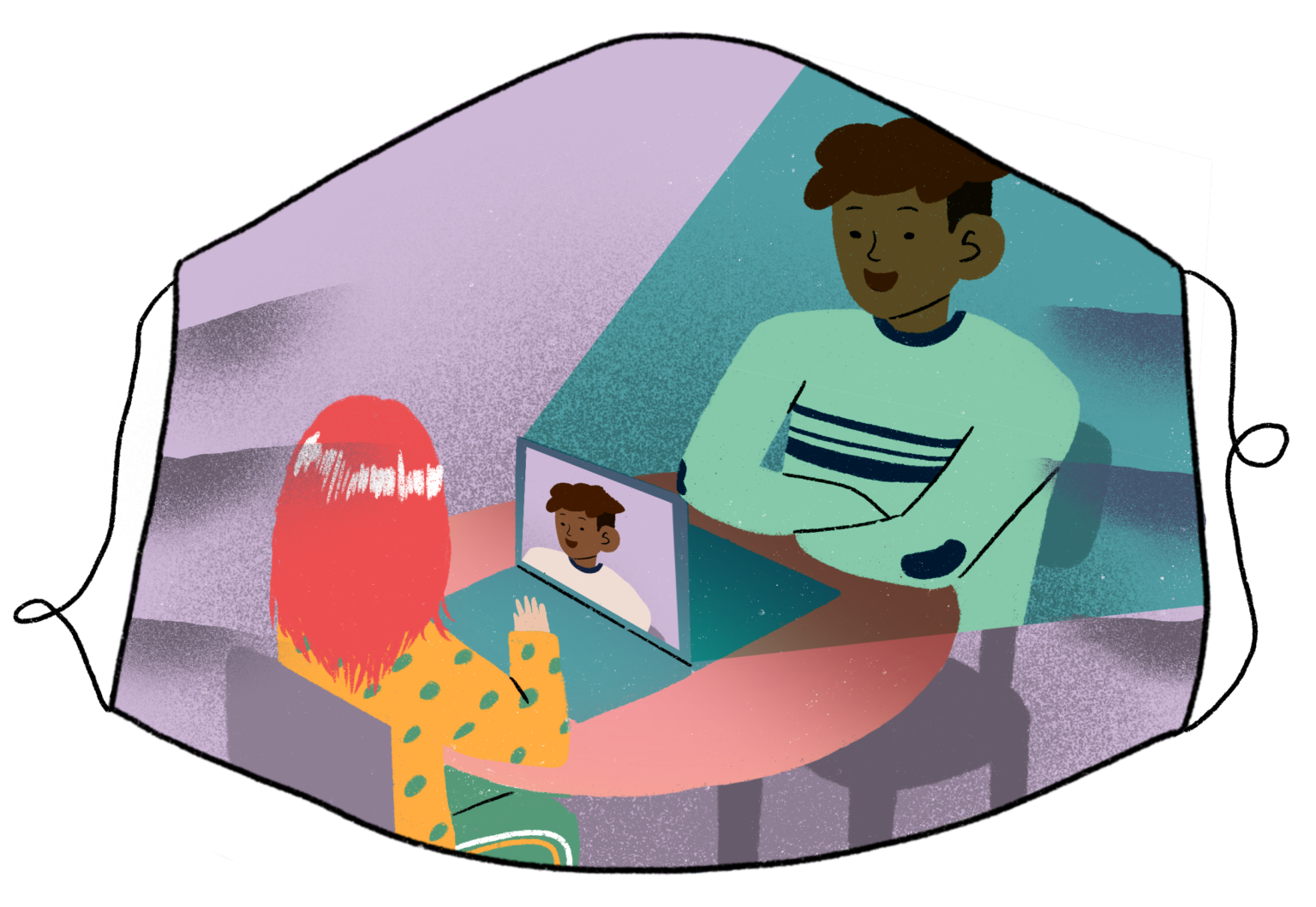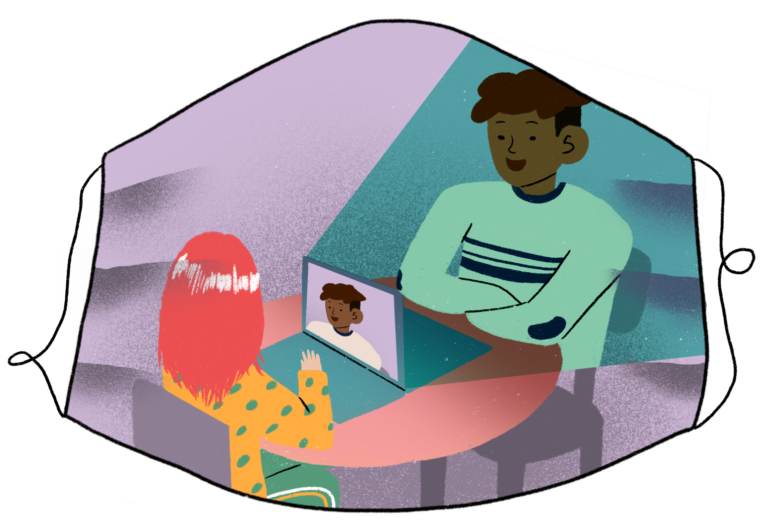

Eight months ago, the Kumon center buzzed with activity. Students flooded through open doors, eager for the day’s lesson. One by one, they took papers from the stack of worksheets being passed around while instructions were read aloud to them. Junior Victoria Ly, an employee at Kumon, helps confused students solve problems in a collaborative manner.
Today, there is a sign on the door of the Kumon center reading “CLOSED.” A place once flooded with noise and activity is now dark and silent. Ly is in her bedroom in front of a glowing computer screen. She logs into her computer, clicks on a link and is greeted by a class of students with their cameras turned off.
Due to COVID-19, several Aragon students have experienced this shift to the virtual environment at their job. After the doors of non-essential businesses closed, the role of employees has changed in the workplace.
“You have to make more of an effort to communicate. When you’re in person, … you don’t have to deliberately text or email”
“We’re having the kids do their own corrections, so it’s more on the kids now rather than on the people who work there,” Ly said. “I feel like the instructors are less essential to the [learning] process [We] don’t have to have as many people [anymore].”
Students now have access to the classwork and homework worksheets virtually and do their own corrections. Student-teacher interactions are limited to short meetings over Zoom.
“You have to make more of an effort to communicate.” Ly said. “When you’re in person, … you don’t have to deliberately text or email [students].”
Other students have experienced different changes in their jobs. Senior Aaron Kang is a lifeguard at Highlands Recreation Center, and his job has remained in-person throughout the pandemic. Although not much has changed at his job, there have been some changes while working.
“There’s more hours to fill [now]. They have a lower volume of people,” Kang said. “They need to run the pool for longer hours, so I do have a longer shift now. But other than that, my work hasn’t been too much affected by it, other than the extra duties that I have to do and the slightly longer hours.”
Sanitization has become increasingly important in the wake of COVID-19.
“We also have to be a lot more careful about dealing with pool patients, because we can’t be close to them. We have to make sure that everyone is wearing a mask,” Kang said. “Because the inherent nature of the pool is that you can’t wear a mask in, it’s sometimes hard to control when people need a mask and when people don’t need to because they need to wear it up until the water, and some people don’t wear the mask all the time because they think, they’re at the pool, they’re in open area, they don’t need to. But it’s county health laws … that you always have to wear a mask.”
At Kang’s job, sanitization has become a greater priority, along with masks and social distancing.
“So as a lifeguard, my job is … first and foremost, [to] watch the pool, [and] make sure people don’t drown,” Kang said. “But my secondary duties now include cleaning all the surfaces when people leave. It includes cleaning the bathrooms, dealing with people’s questions about pool procedures or the whole rec center as a whole. Just kind of general maintenance, anything that happens at the pool kind of defers to us lifeguards.”
Junior Anthony Surkov, like Kang, experienced the increased sanitization in businesses that operate in person. He was an employee at Gold Medal Martial Arts, a taekwondo studio.
“All the equipment needed to be disinfected more often,” Surkov said. “[There was] more extra work [to do] than what I already had.”
The fear of falling sick to COVID-19 puts greater responsibility on employees to ensure the workspace’s cleanliness. Increased regulations often came with businesses, especially those deemed non-essential, needing to shut down due to COVID-19 regulations.
“[Gold Medal] closed down as a non-essential business and took my job,” Surkov said.
“Find opportunities that you’d like to pursue after quarantine. Develop your skills right now”
From March to April, COVID-19 restrictions peaked. New cases began to overwhelm hospitals, and COVID-19 was officially declared a pandemic by the World Health Organization. During this time, the unemployment rate in the U.S. shot up from 4.4% to 14.7%.
From showing a student how to tie their white belt to teaching them the form required to be a black belt, eight years of experience were put to an end. Taekwondo is no longer a part of Surkov’s life. The spacious floor of Gold Medal is left untouched behind closed doors.
Surkov tried to get his position back, not wanting to give up on the job. Despite his efforts, he was not able to.
“More COVID[-19] restrictions were imposed, which made it even harder for [Gold Medal] to reopen,” Surkov said. “They limited the staff to only the adult instructors that were there.”
As a former teen employee, Surkov recommends waiting until after stay-at-home orders to start working.
“Find opportunities that you’d like to pursue after quarantine. Develop your skills right now,” Surkov said. “Right now, it is very difficult to move into a field, especially when we have so many unemployed adults and career opportunities missing.”



